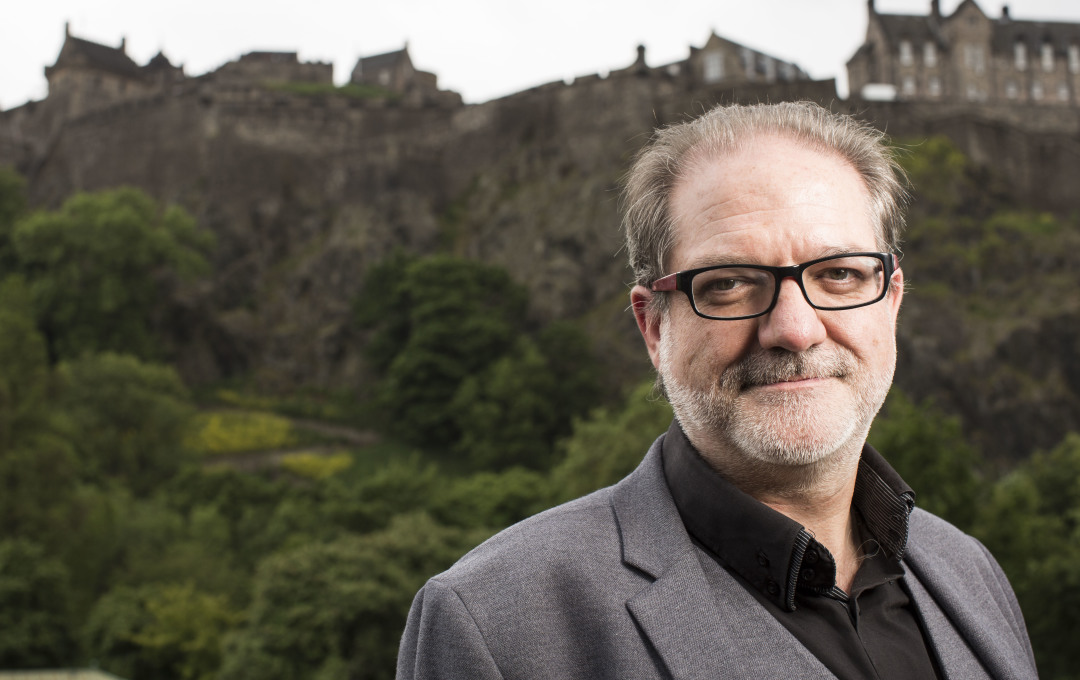Justice through healing

With almost a quarter of Edinburgh families living in poverty, our CEO Ewan Aitken reflects on the deep emotional and physical impact he's seen poverty have throughout his career, and how that feeds his passion for compassionate, supportive work to reduce poverty and its impacts.
When I left school in 1980, I moved to Glasgow to work for a Youth Outreach project in Ruchill on a one-year contract doing detached youth work. The project involved living in the community we were serving – “full immersion” was the theory. I don't know if I would do it now, but it was good for me then.
It was a transformative year for me. I learnt so much about myself and what actually mattered to me. What I saw, who I met and what I learnt still form much of the passion I continue to have for change and justice; the reasons which were, more than 30 years later, to bring me to Cyrenians.
What my year in Ruchill opened my eyes most to was the impact of poverty, not just financially but emotionally and physically. It was, at the time, one of the poorest areas in Scotland. I spent time in houses which were damp, with mould on the walls, where there were no carpets and dinner was beans on toast. I listened to the stories of young people who had been unable to get work since they left school and felt thrown on the scrap heap.
“Why should I bother if naebody bothers about me”
That was a refrain I often heard. Again and again I heard folk tell of how the fragility of life in poverty, living with its stigma and isolation, had ground them down inside to the point where there seemed no point. It took many forms - every story was different - but at their core, the commonality was the sense of hopelessness, the feeling there was no path out of their circumstances.
Things have changed greatly in the now over 40 years since I lived in Ruchill. We have a radically different economy. The social security system is completely different. We have the living wage and, in many ways, greater awareness of the prevalence and impact of poverty. Yet we still have in huge numbers of people living with the reality of poverty every day. The number of young people in poverty in Edinburgh has grown to 24%, but 70% of them live in a family where there is a working adult. These numbers have not improved in 10 years.
At Cyrenians. we see the impact of poverty on people's lives every day. And it's not always in the obvious ways. Recently we were able to give a refurbished laptop (provided by the lovely people at Edinburgh Remakery) to someone we are supporting who is terminally ill, with family who all live abroad. At the most fragile, vulnerable moment in their life, poverty limited their ability to reach out and connect with their loved ones. With the laptop, their final months will now be a little less blighted by their poverty, but it's a stark example of how bleak poverty can be.
We need big plans from those in power, like a minimum income guarantee. We need employers to pay folk properly. We need childcare to be much cheaper (Britain has the most expensive childcare in Europe). But more than anything, we need to understand the journey out of poverty needs to include a healing of the "soul."
When I say "soul", I'm not speaking religiously but in term of our inner life, our wellbeing and confidence, our sense of hope and self. As one person from Cyrenians employability programme who was delighted to get a job told me;
"This worked for me because you built a community around me and I felt I mattered once again”
To paraphrase the words I heard so long ago in Glasgow, she "could be bothered because she felt other people were bothered about her". Change and justice need both help from outside and healing inside.